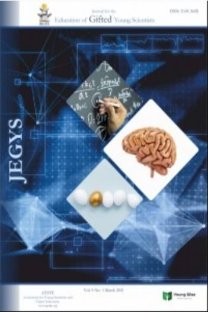A key to excellence: patience and patient in the early Sufis
Patience is one of the basic principles of Sufism, which is widely included in the Quran and hadiths. In Sufi understanding, it is accepted that the basis of patience is to abandon the complaint and complaint to the divine appreciation. Patience is one of the basic levels that must be reached by the Sufis on the way to becoming a perfect human. The early Sufis defined patience according to their spiritual state and graded it as the patience of ones who obey the god and lover of the god. Patience is one of the basic levels that must be reached by the Sufis on the way to becoming a perfect human. The early Sufis defined patience according to their spiritual state and graded it as the patience of the abids and the minstrels. Terms that are important in Sufism such as submission, zuhd, poor, consent, which are related to patience; They are regarded as facilitators of patience. These levels are elements that complement each other in combating the nafs. For Sufis, the reward of patience is forgiveness and eternal happiness. Therefore, it is seen as an element of psychological treatment, as it requires patience, tolerance against obstacles and preserving hope for the difficulties of worshiping. Patience, a transformation and educational activity in terms of achieving positive personality traits is one of the important points in Sufi terminology. Key words: The early Sufis Patience, Quran, Hadith, Levels, Achievements.
Keywords:
The early Sufis Patience, Quran, Hadith, Levels, Achievements. excellence,
___
- Afîfî, A.A.(2018). Tasawwuf. Trans. Ekrem Demirli, Abdullah Kartal. Istanbul: İz Publications.
- Ajluni, I.M.(2000). Kashf al-Khafa'. ed. Yusuf b. Mahmûd al-Haj Ahmed. Damascus: Maktaba al Ilm Hadîs.
- Ankaravî, İ.(2011). Minhâcû’l-fukarâ. Pleasure Sadettin Ekici and Others. Istanbul: Human Publications.
- Ansari, K. A.(1988). Manāzel al-Sā'erīn. Beirut: Dar al kutub al Ilmıyyah.
- ‘Attâr, F.(2020). Mukhtār-Nāma. http://pdf.tarikhema.ir/ancient. Date of Access 25.06.2020.
- ‘Attâr, F.(2000). Tadhkirat-ul-Awliyā. Trans. by A.J.Arberry. Iowa: Omphaloskepsıs.
- Baqī, ʿA.(2008). al-Muʿjam al-Mufahras li-Alfāẓ al-Qur'ān al-Karīm. Cairo: Dar al-Kutub al-Misriyyah.
- Bukhârî, İ.(2002). Sahîh-i Bukhârî. Beirut: Dar İbnKesir.
- Corbin, H.(1978). The Man of Light in Iranian Sufism. Trans. Nancy Pearson. London: Shambhala Publications.
- Ghazālī, M.(2001). Kimiya-yi sa'ādat. Trans. Muhammad Asım Bılal. Lahor: Kazı Publications.
- Ghazālī, M.(1960). Ihya’ Ulûm al dîn. Trans. Ahmed Serdaroğlu, Istanbul: Bedir Publications.
- Hajjac, M.(2008). Sahîh-i Muslim. Beirut: Dar al Tayyibah.
- Hamadânî.(2015). Temhîdât (Aşk ve Hakîkat Üzerine Konuşmalar).Ed. Halil Baltacı. Istanbul: Dergâh Publications.
- Hujvirî, A. O.(2000). Kaşf al-Mahjûb. Cairo: Maṭbūʻāt al-Majlis al-Aʻlá lil Thaqāfah.
- Ibn Fâris, Z.(1979). Mu’cemümekâyisi’l-luga. Ed. Abdüsselam Muhammad Harun. Beirut: Dar al-Fıkr.
- Ibn Fûrak.(2014). al-İbâne an Turuki’l-Kâsıdîn. Trans. Ahmet Yıldırım. Istanbul: President of Türkiye Manuscripts Agenty Publications.
- Ibn Manzûr, A.(2010) Lisān al-ʿArab. ed. Yusuf Hayyat-Nedim Mer’aşlî. Beirut: Dar al-Lisân al-Arab.
- Isfahanî, R.(2009). al Müfredât fî Garîb al Kur’ân. Rıyadh: Maktab al Nazzar.
- Jarrah, S.(2013). Istılahat-ı Sofiyye fi Vatan-ı Asliyye. Trans. Safer Dal. Istanbul: Kırkkandil Publications, 2013.
- Jawziyye, I. Q.(2008). Uddat as-Sabirin wa Dhakhiratu ash-Shakirin. Ed. İsmail b. Gazi Merheba. Meccah: Dar al Âlem al-Fevaid.
- Jîlânî, A.(2010). Nahr al Kâdiri. Trans. Muhammad Fâdıl Jîlânî. Istanbul: Jîlânî Science and Research Association.
- Jurjani, S.(2011). Taʿrīfāt. Ed. Muhammad Sadık al Munşavî. Rıyad: Dar al Fadîla.
- Kalâbâdhî, A.(1994). Kitâbu’t-ta’arrufli-madhhabi ahl al-tasawwuf. Cairo: al-Maktabah al-Hancî.
- Kasanî, A.(2015). Tasawwuf Dictionary. trans. Ekrem Demirli. Istanbul:İz Publications.
- Khan, K.(2003). Studies in Tasawwuf. New Delhi: Kitap Bhavan.
- Kubrâ, N.(2018). al-Usûl al-‘Ashara. Pleasure Süleyman Gökbulut. Istanbul: Human Publications,2018.
- Mâverdî.(1992). an-Nüket ve’l-Uyûn. Ed. Sayyid b. Abdilmaksud b. Abdirrahman. Beyrut: Dar al Kutub al-Ilmıyyah.
- Makki, A.(2014). Qut al-Qulub. Trans. Yakup Çiçek, Dilaver Selvi. Istanbul: Semerkand Publications.
- Nasr. H.(1981). Islamic Life and Thought. London: Unwin.
- Ozturk, Y.N.(1990). Sufism according to the Quran and Sunnah. Istanbul: New Dimension.
- Qushayrî, ‘A.(1989). Risâlat al-Qushayriyya. Cairo: Muassasah Dar aş-Şa’b.
- Qushayrî, ‘A.(1981). Laṭā'if al-Isharat bi-Tafsīr al-Qur'ān. Egypt.
- Rāzī,F.(1420). Mafātiḥ al-Ghayb. Beirut: Dar Ihya al-Turath al-Arabi,.
- Sarrâj, A.(1960). Luma’.Ed. Abd al HalîmMahmûd Tâhâ Abd al-Bâkî. Cairo: Dar al Kutub al-Hadis.
- Suhrawardī, A.(2011). ‘Awārif al-ma‘ārif. Trans. Dilaver Selvi, Istanbul: Semerkand. Sulamî, A.(2018). Tabaqāt as-sûfiyya. Trans. Abdurrezzak Tek. Bursa: Bursa Academia. Sulamî, A.(1981).Tis’a kütüp” Sülemî’nin Risâleleri. Ed. and Trans. Süleyman Ateş. Ankara: Ankara University printing Office.
- Tabari, I.(2008).Tafsir al-Kabir. Ed.Abdallah Ibn Abdel Mohsen at-Turkî. Riyadh: Dar al Alem al-Kutub.
- Yılmaz, H. K.(2015).Ana Hatlarıyla Tasavvuf ve Tarîkatlar. Istanbul: Ansar Publications.
- Zabīdī, M.(2008).Taj al-Arus Min Jawahir al-Qamus. Ed. Mostafa Hicâzî/Abdulhalm al-Tahâvî/Abdulkarîm Azbâvîv. Beirut: Dar Ihya al-Turath al-Arabi.
- Başlangıç: 2013
- Yayıncı: Genç Bilge Yayıncılık
